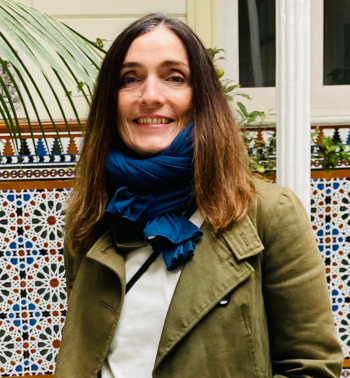15 October 2024
What is your role?
I’m Consultant Clinical Psychologist with the Psycho-Oncology support Team (POST), Dimbleby Cancer Care, Guy’s Cancer, and Clinic lead for Dimbleby Cancer Care. We provide a range of psychological support and therapies, benefits advice, complementary therapy and a cancer information service for people diagnosed and treated for cancer at Guy’s and St Thomas' NHS Foundation Trust.
What do you enjoy most about your role?
Helping people find meaning where perhaps they cannot find any, and together creating a way to get through the difficult ‘stuff.’ I also love creating and forming good relationships and connections with colleagues and working collectively to help create change.
I’m really proud of our service-it really is a team, and also the clinicians I work with in the wider hospital systems: nursing, medical and AHP colleagues. I enjoy working with people who are dedicated to their work and do want the best for people they support.
What inspired you to get into this work?
I became inspired to go into clinical psychology as it enabled me to combine my love of learning and theory in relation to creating change and being able to put this into practice in the real world.
Additionally, I was and remain passionate about working within the NHS: being able to provide a service for people who otherwise would not be able to see us - we are for the many not the few. I first started out in primary care working with GP’s and then palliative care and then moved into cancer services. I really found my home in cancer services, meeting people at a significant and possibly one of the most difficult time in their lives.
I have learned over the years that psychological approaches can really help people to live meaningfully and well with cancer, and can also help inform the creation of services that are responsive, compassionate and thoughtful about what people need and when they need it-we really can and do make a difference.
What are the benefits of working in partnership?
It’s how you do partnership that remains the most important thing, otherwise it can feel tokenistic.
When done well working in partnership helps you see things from the other person’s’ point of view and really helps you work more effectively together-which benefits everyone. We can sometimes get stuck into our ‘worldview’ and way of seeing and doing things, and so partnership enables us to pause and consider alternatives. This can be hard, and yet our differences really are our strengths.
What would be your one career top tip?
Keep your eyes open, know what matters to you, and always have a go to person. (That is three things!)





